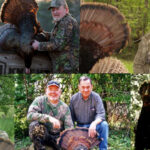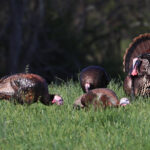A poacher stands in a grove of trees, darkness acting as a shroud around him. In the stillness of the night, he hears a barred owl call, and on impulse he calls back to it “Who-cooks-for-you, Who-cooks-for-you-all?”
Yet, instead of hearing the owl in return, another voice sounds from nearby.
“Fish and game, that’s who.”
Busted!
My dad, who was a wildlife biologist for the state of NJ, loved to tell that story to my siblings and I when we were little. As an adult looking back, I’m not sure how much of the story is true but it’s definitely funny either way.
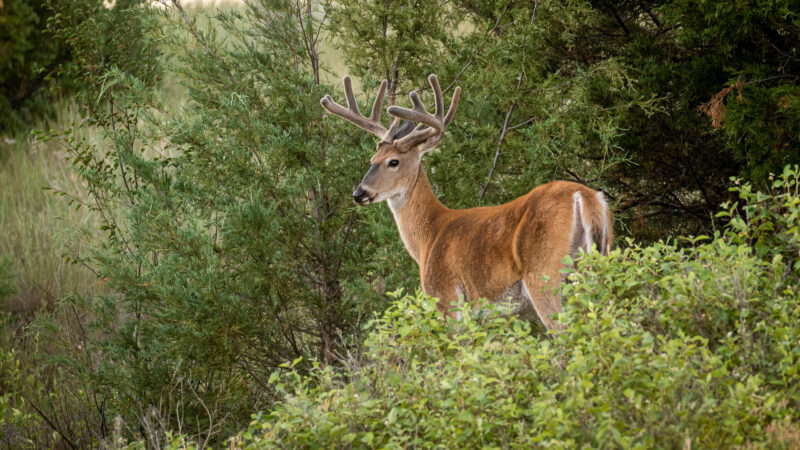
Living in a small town with lots of public land nearby, poaching was fairly common. There were always people getting caught spotlighting deer on some back roads, or someone shooting a velvet buck out of season.
Many people assume that poaching is something that mainly occurs in the Midwest due to big deer, or out west where the elk and mule deer live abundantly. However, poaching isn’t something that can be pinpointed to one specific area. Poaching in general is something that’s hard to keep accurate records of statistically speaking. Who knows how many poachers are out there who never got caught? However, poaching animals in a state that you don’t reside in does seem to be a pattern for many of the biggest poaching stings in history.
In December of 2022, in one of the largest poaching cases to ever be handled in Wyoming, three men were charged with more than 100 wildlife violations. All three of them were nonresidents of Wyoming, and face over $300,000 in fines and restitution, combined years of jail time, and lifetime hunting bans.
Russell Vick of Alabama, Robert Underwood of Oklahoma, and Robert’s son, David Underwood of South Dakota, have a history of poaching, faulty addresses, hidden taxidermy, and even dead migratory birds, alligators, and a walrus.
While it took 7 years to close this case, the fact that they had mounted many of the animals that were illegally taken simply sealed their fate.
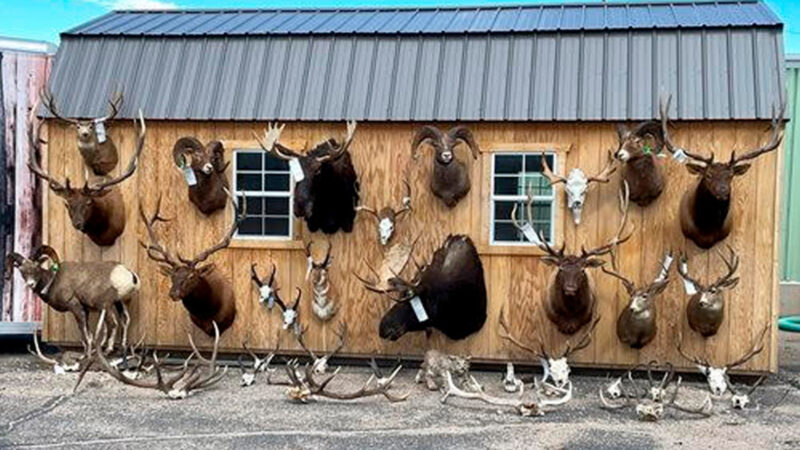
Just recently, it was revealed in online sources that the “Instagram famous” Bowmars, were charged and sentenced in the largest poaching case in Nebraska history. The Bowmars own various companies focusing on fitness and hunting, and have become extremely successful through social media.
The Bowmar case had been ongoing for several years. They were not Nebraska residents, nor are they to this day. The married couple, Sarah and Josh, received hefty fines, temporary hunting bans, and probation. There were also a number of other hunters involved in this particular case.
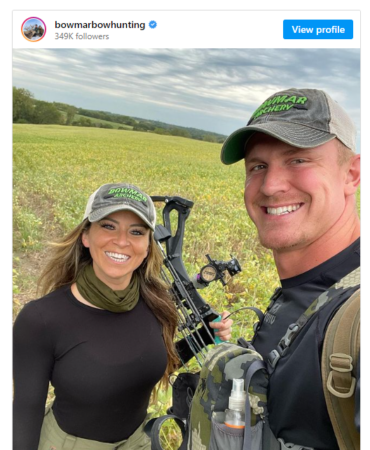
In 2011, one the largest trophy deer poaching cases in U.S. history came to a close with two arrests. Texas brothers Martin and James Butler were found to be running an illegal hunting operation in Kansas. Nearly 200 whitetail bucks we’re illegally taken by clients from 2005-2008.
The clients were often guided by one of the brothers, and were often taken out of season, or at night, and even with firearms during archery season. The brothers were sentenced to a combined 5.75 years in prison and fined $70,000 – which seems like a small price to pay.
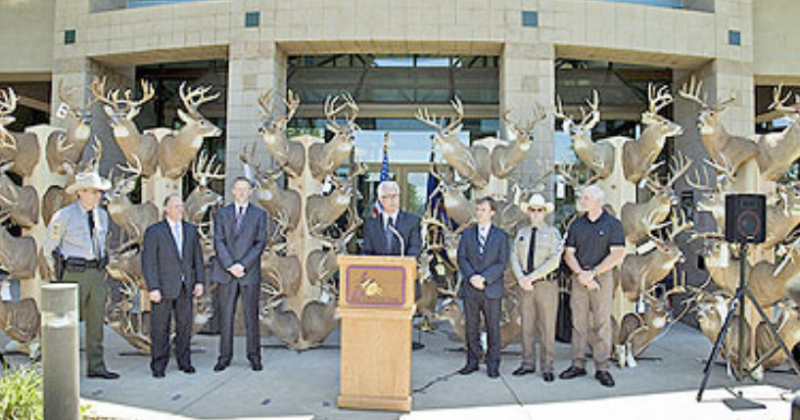
Aug. 12, 2022, three days before Alaska’s draw-only mountain goat season opened,
Brett Jatrinski, a 20-year-old Massachusetts native shot and killed two mountain goats. Not only did he shoot them illegally out of season, but the meat wasn’t used which made it even worse.
Alaska Department of Public Safety released a statement: “During AWT’s investigation, it was discovered that Brett Jatrinski, age 20 of Ketchikan, had shot and killed two mountain goats out of season and he failed to salvage any of the edible meat from either mountain goat. Jatrinksi was charged with two counts of [wanton waste] and two counts of hunting closed season.”
Jatrinski was sentenced to 7 days in jail and a $5,000 fine. He also forfeited his rifle, will be on probation for three years, and can’t hunt or fish for two years. The interesting part of this whole event is that there was a witness; a hunting guide out scouting for goats for the season opener. Not only did he witness the poaching, but he filmed it all on his phone. Today’s technology is making it easier than ever to capture evidence of illegal hunting.
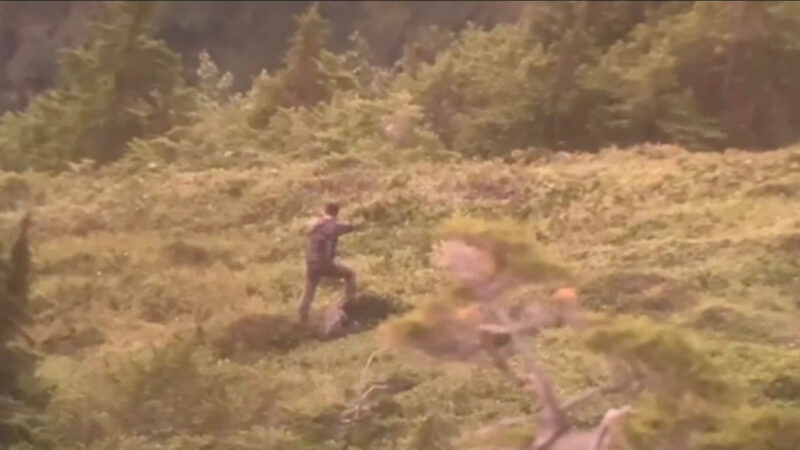
The state of Pennsylvania is home to one of the biggest hunter populations in the United States, which isn’t surprising given the amount of deer, bear, and turkeys. Yet, in 2011, five hunters from the state of Maine were charged for poaching dozens of deer. More than 250 charges were filed, and hundreds of pounds of meat were seized along with firearms and bows.
The alleged crimes committed included the unlawful killing of dozens of deer, including three large racked bucks, spotlighting illegally, and illegally selling and buying game. Some deer were believed to have been killed in Pennsylvania during the state’s early muzzleloader and regular firearms deer seasons in 2010, and some were believed to have been illegally taken in Maine.
While executing search warrants at the residents of the men in question, agents seized hundreds of pounds of meat, firearms, antlers, bows and arrows, spotlights, a mounted hawk, an owl, a computer, and other hunting related equipment.
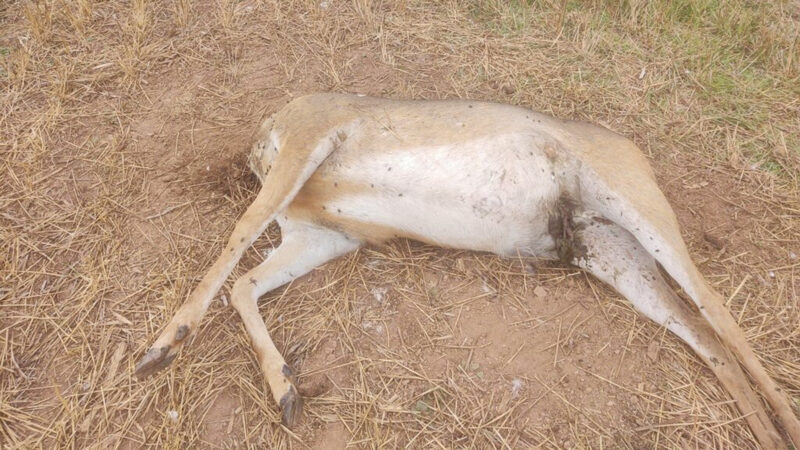
The way many of these cases are handled, and the penalties that are ultimately dealt out, it’s no wonder so many of these poachers are willing to play the game. Think about it. In many cases, it’s cheaper for these poachers to poach than pay an outfitter!
There definitely seems to be a need for stiffer penalties for crimes committed. If there’s not much to lose, poachers will continue to take the risk.
What about you? What do you think poachers should pay in fines and jail time when committing violations like the ones mentioned above? Did these offenders get off easy?
Comment below, and let us know your thoughts.
And if you witness a poacher in action or have knowledge of a wildlife crime, call your local wildlife officer or the toll-free TIP line in your area.

 By
By 
